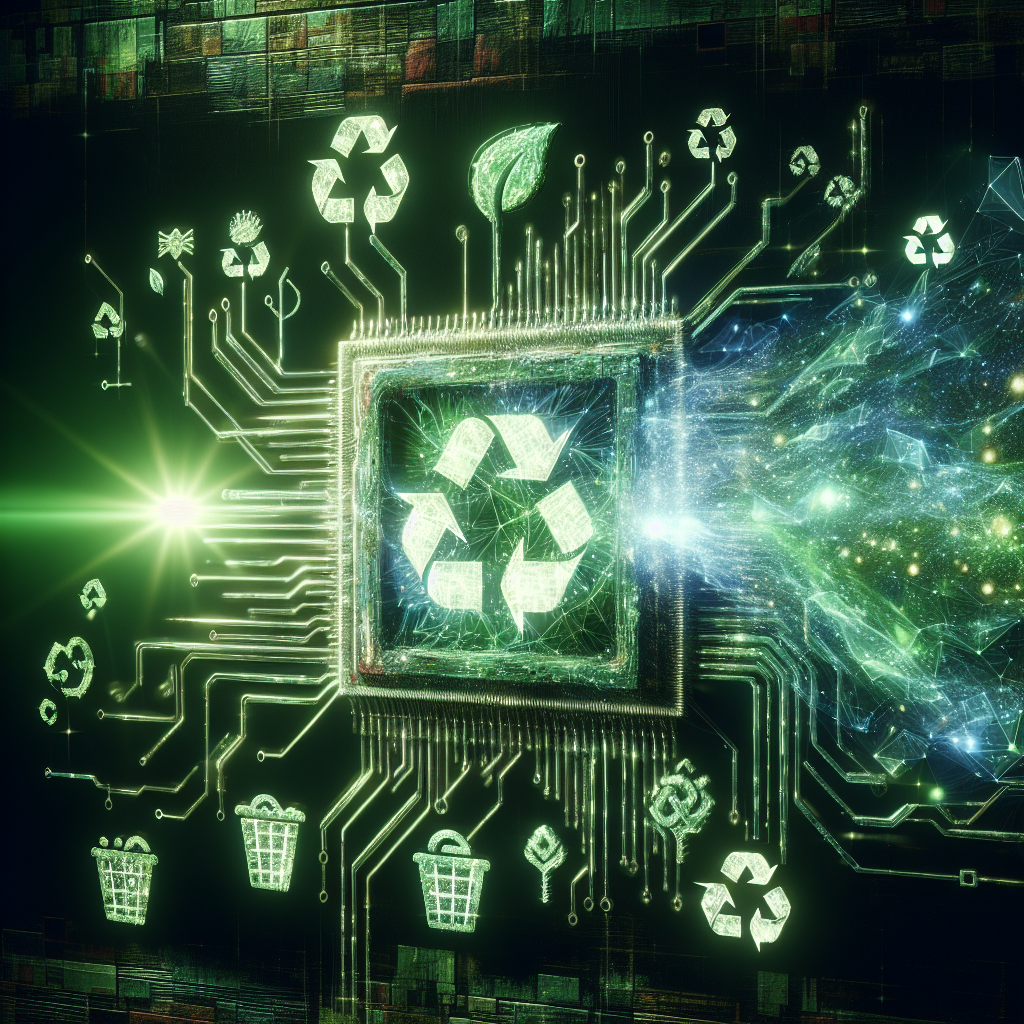In recent years, the issue of waste management has become a growing concern for communities worldwide. With the increasing population and urbanization, the amount of waste generated has also been on the rise. This has led to a greater focus on sustainable waste management practices to reduce the impact on the environment and public health. Artificial Intelligence (AI) has emerged as a powerful tool in transforming waste management processes and improving efficiency and sustainability.
AI technologies can be applied in various stages of waste management, from collection and sorting to recycling and disposal. By leveraging AI algorithms and machine learning techniques, waste management companies and municipalities can optimize their operations, reduce costs, and minimize environmental impact.
One of the key areas where AI is making a significant impact is in waste collection. Traditional waste collection methods rely on fixed schedules and routes, which can be inefficient and result in unnecessary fuel consumption and emissions. AI-powered solutions can help optimize waste collection routes by analyzing real-time data on waste generation, traffic conditions, and other relevant factors. This allows waste collection vehicles to be deployed more effectively, reducing travel time and fuel consumption.
Furthermore, AI can also be used to improve the sorting and recycling process. Waste sorting facilities typically rely on manual labor to separate recyclable materials from non-recyclable waste. This process can be time-consuming and error-prone, leading to lower recycling rates and higher contamination levels. AI-powered sorting systems, on the other hand, can accurately identify and sort different types of waste materials based on their composition, color, and other characteristics. This not only improves recycling efficiency but also reduces the amount of waste sent to landfills.
In addition to collection and sorting, AI can also be used to monitor and optimize waste disposal processes. Landfills are a major source of environmental pollution, releasing greenhouse gases and other harmful substances into the atmosphere. AI technologies can help landfill operators monitor gas emissions, detect leaks, and optimize waste compaction to reduce environmental impact. By analyzing data from sensors and other monitoring devices, AI systems can provide real-time insights and alerts to help operators manage landfills more effectively.
Overall, the integration of AI into waste management processes has the potential to revolutionize the industry and make it more sustainable and efficient. By leveraging AI technologies, waste management companies and municipalities can reduce costs, improve recycling rates, and minimize environmental impact. As AI continues to advance, we can expect to see even more innovative solutions that will further transform the waste management industry.
FAQs:
Q: How does AI help in waste collection?
A: AI can help optimize waste collection routes by analyzing real-time data on waste generation, traffic conditions, and other relevant factors. This allows waste collection vehicles to be deployed more effectively, reducing travel time and fuel consumption.
Q: How does AI improve waste sorting and recycling?
A: AI-powered sorting systems can accurately identify and sort different types of waste materials based on their composition, color, and other characteristics. This improves recycling efficiency and reduces the amount of waste sent to landfills.
Q: How does AI help in monitoring waste disposal processes?
A: AI technologies can help landfill operators monitor gas emissions, detect leaks, and optimize waste compaction to reduce environmental impact. By analyzing data from sensors and other monitoring devices, AI systems can provide real-time insights and alerts to help operators manage landfills more effectively.

